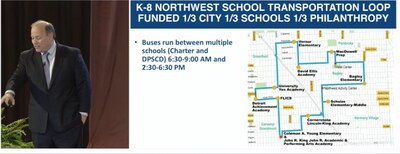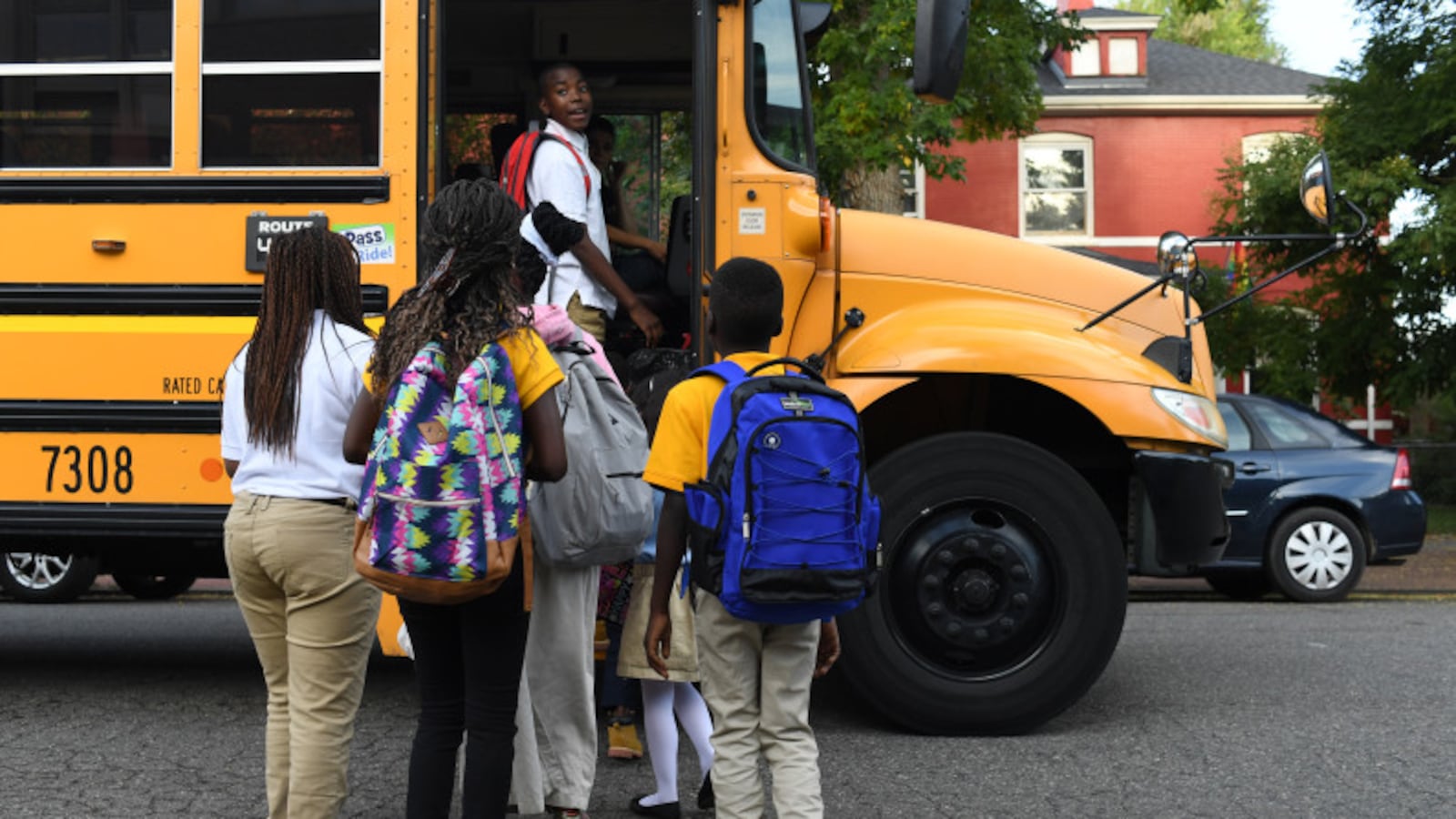A city effort to create a shared bus route that would transport children to both district and charter schools in Detroit is catching flack from community members and getting some extra scrutiny from the Detroit school board.
The school board is now planning to consider just a one-year contract for the bus route — rather than the five years that were initially proposed — and to recalculate its costs to ensure that the district doesn’t overpay.
Mayor Mike Duggan announced the bus route — an unusual effort of cooperation between historically combative district and charter schools — with great fanfare during his State of City address in March. He called the meeting where he brought district and charter school leaders together to discuss the idea “almost historic,” adding: “They’re getting along.”
But the plan to use buses that would drive a fixed route, picking up and dropping off students at a mix of district and charter schools and delivering some to a shared after-school recreation center, hit a snag soon after when Superintendent Nikolai Vitti learned that the cost to the district would be higher than he initially believed.
He told a school board finance committee in March the he had thought the bus route would cost the district $25,000 in total but soon learned that the cost would actually be $25,000 per school — up to $125,000 if all five district schools planned for the inaugural loop were included. The plan also involves five charter schools.
Vitti has since renegotiated the deal with the city and other parties and now says the district will pay per student, rather than per school.
Vitti told a community school board meeting Monday night at the Frederick Douglass Academy for Young Men that current plans call for the district to pay $1,000 per student. Riding the bus to an after-school program, where district and charter school students will together participate in programs such arts or robotics, will cost an additional $500 per student.
Duggan’s chief of staff, Alexis Wiley, said the mayor’s office has offered all participating schools several options for how to pay for the bus route.
“We’ve been working with all the schools involved in hearing out their concerns and making sure we’re addressing them so we can collectively provide a much-needed resource to children who live in this area,” she said.
It’s not yet clear how much the per-student funding structure will cost schools that choose that option since it’s hard to predict how many students will choose to ride the buses. But Vitti said the new structure enables the district to avoid paying for buses that are primarily serving charter school students. He said he wanted to avoid subsidizing expenses for charter schools that weren’t previously providing busing.
The plan, which will be funded one-third by the city, one-third by philanthropy and one-third by participating schools, will start with a pilot involving a group of schools in northwest Detroit. The after-school programs would be held at the Northwest Activities Center.
The idea has been controversial. Several people questioned the district’s involvement during Monday’s community meeting, where community members were invited to address Vitti and two school board members on any topic.
Vitti told the audience that the district is scaling back from previous plans by going with a one-year contract instead of a five-year to see how things go before making a bigger commitment. The contract will be renewable at the end of the first year.
“I would never make a final recommendation to the board if I didn’t think it was in the best interest of DPSCD and students,” Vitti said.
School board president Iris Taylor said the board plans to scrutinize the plan before authorizing it.
“To date, we have not seen the final agreement,” Taylor said at the meeting. “In concept, there are some pros and cons to engaging, but we want to be sure that we vet the entire proposal very clearly.”
The contract is expected to be considered by two school board committees in May and is scheduled for a final vote before the full school board in June, Taylor said.


